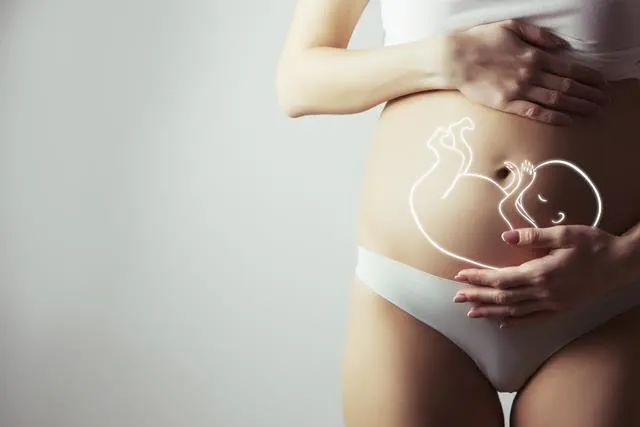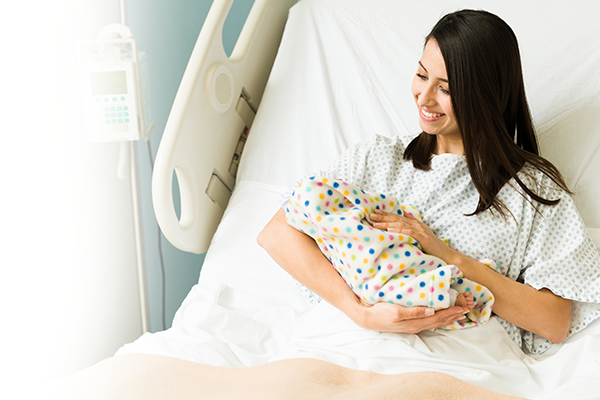Hashimoto's is an autoimmune thyroid disease of unknown etiology. In women struggling with this condition, conception and delivery of a pregnancy is difficult. To this day, it is not known why the female body treats the embryo as a foreign body and destroys it. Current medicine allows women with Hashimoto's to get pregnant and give birth to a healthy baby.
The diagnosis and treatment of autoimmune thyroid disease in pregnancy is a real challenge for doctors. That’s because there is no effective drug to permanently defeat the condition. The thyrotropic hormone administered is treated only as an auxiliary drug. If a woman is under the constant care of an endocrinologist and gynecologist, she has a chance to carry a pregnancy.
Hashimoto’s and pregnancy – why is getting pregnant difficult?
Hashimoto’s disease is an autoimmune disorder, and therefore associated with an impaired immune system. There is no clear cause for its formation. To date, the reason for the appearance of thyroid antibodies in a woman’s body is still unknown. It is only speculated that genetic factors play a big role, as women with a family history of the disease are much more likely to get the disease.
The thyroid gland is an organ that performs a very important function in the body. It produces hormones that affect metabolism and metabolism. They also regulate the heart and nervous system. Disregulation of this gland negatively affects a woman’s fertility. The low amount of hormones produced leads to an increase in another hormone, prolactin, which is responsible for ovulation. Lack of ovulation prevents pregnancy.
Overproduction, in turn, is the cause of miscarriages if a woman develops a pregnancy. Statistically, the risk of losing a baby is twice that of a healthy pregnant woman. Hashimoto’s disease in pregnancy can lead to malformations in the fetus.
Hashimoto’s and pregnancy planning
If a woman has problems ovulating or getting pregnant, or is burdened by a family history of thyroid disease, pregnancy planning should begin with diagnostic tests to evaluate the thyroid gland.
Laboratory tests should also be performed by ladies who are struggling with Hashimoto’s, and getting pregnant is their intention. Thyroid function needs to be regulated by lowering antibody levels.
Pregnancy and Hashimoto’s – what’s next?
The issue of “Hashimoto’s and pregnancy” is still a challenge for doctors. While it is known how to get pregnant with Hashimoto’s, it is still not entirely certain whether it can be maintained. With Hashimoto’s, pregnancy is treated like a foreign body that needs to be expelled. The embryo does not develop, and thyroid antibodies in the mother’s body are to blame. In the early stages of pregnancy, there is little that can be done. In many cases there is a spontaneous miscarriage.
If the pregnancy is developing normally, the woman is advised to take pharmacotherapy after tests, such as:
- ultrasonography (USG) of the thyroid gland,
- TSH – thyrotropic hormone,
- FT3 – triiodothyronine,
- FT4 – thyroxine,
- aTPO – antibodies against thyroid peroxidase,
- aTG – antibodies to thyroglobulin.
The mother-to-be should be under the constant care of an endocrinologist and an attending gynecologist. If necessary, she must take medication from the beginning of pregnancy until delivery. Sometimes also afterwards, as the disease likes to reveal itself only after the solution. Hashimoto’s after pregnancy is very common. It is not known what causes them.
Hashimoto’s treatment in pregnancy
Treatment of Hashimoto’s in pregnancy involves the use of medications that regulate thyroid function. Diet is also very important. A low-carbohydrate diet is recommended for autoimmune thyroiditis. The mom-to-be should avoid gluten-containing products, fatty dairy and bloating vegetables. He can eat meat and vegetables with a low glycemic index without hindrance.
When pregnant with Hashimoto’s, regular checkups are important. According to the recommendations, it should be performed at least once a month until the 26th week of pregnancy. Between 26 and 32 weeks of pregnancy, thyroid tests can be performed only once.
Rate this article:










